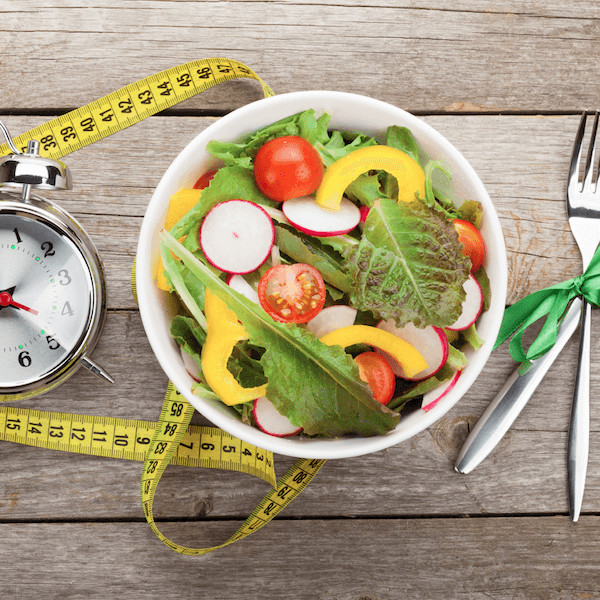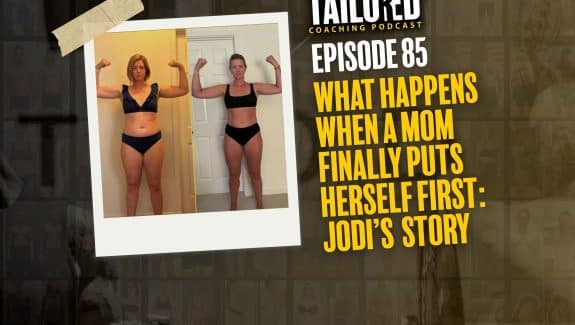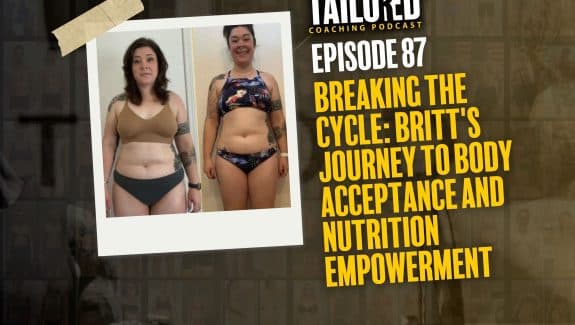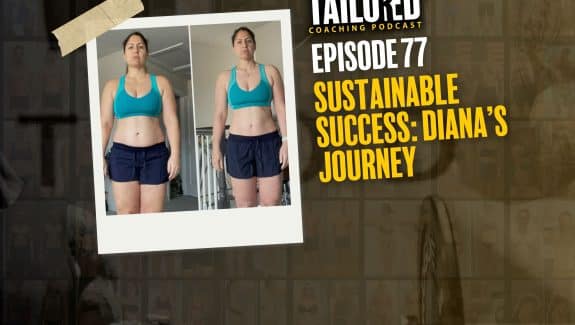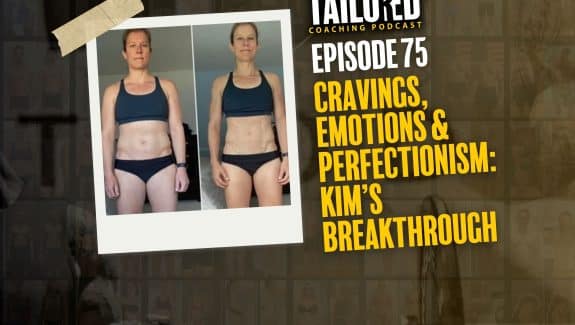Meal timing was a HUGE thing in the fitness, health and nutrition industry for a while. If you weren’t strategically separating your meals – specifically by 2-3 hours each while consuming 6 meals a day in order to “stroke the fire” and get your metabolism burning – you were literally destroying your results.
See that was the key. There was no macro counting, no apps to track your calories per day, and very little discussion around the topic of brain health, gut health, your microbiome, and the micronutrients that affect it all.
According to the experts, or guru’s, back then it really was as simple as eating 6 meals per day with some form of protein and pretty much deciding between broccoli and green beans. Oh yeah, throw some brown rice in there too…
See then we discovered that the reason guys could get so jacked and lean eating this way had nothing to do with how spaced out the meals were, how many meals per day were consumed, whether they ate chicken or turkey… It was all because of their daily caloric and macronutrient intake.
Then, just as we took the chicken and broccoli too far, we took this calorie concept too far as well…
Once this calorie concept was discovered, Flexible Dieting and IIFYM or “If It Fits Your Macros” were born.
Flexible Dieting was smart and balanced. It was defined as a way to hit all your targets from your macros, your calories, and your micronutrients while losing weight. So this means you stay in your calories and still focus on health, but allow yourself the flexibility to choose the foods you consume within those calories.
See to the creators, this meant choosing steak or salmon over chicken and olive oil. It meant choosing white rice, sweet potatoes or whole wheat bread instead of brown rice every time.
But when IIFYM got a hold of it, they decided that it meant
“do anything you can to fit some junk food into your caloric intake”.
So guys then started drinking protein powder, taking fish oil and fiber gummies, and squeezing in as many Oreo cookies into their calories as they could. You don’t need to be a nutritionist or have a PHD to understand that this probably isn’t great for you.
A cookie here and there? Absolutely fine, won’t affect your body negatively at all assuming you stay in your calorie intake and still hit your micronutrients daily.
But when you over consume processed sugar and artificial shit, you will likely see adverse effects sooner or later.
See now there are many studies coming out about the gut microbiome, brain health, and more… They’re discovering that putting this shit in your body DOES matter, especially in excess. They’re also discovering that meal timing DOES matter.
Everything comes full swing in life and fitness/nutrition doesn’t fall short of that. (And no, I don’t believe the negative hype around coconut oil… but that’s an entirely different rant I’ll save you from – comment below if you care to ask).
So today, we’re going to expand on that meal timing theory and why it may be important for you to consider it.
#1 – Circadian Rhythm
The circadian rhythm is essentially your “body clock”. This is the timer our body was designed with that tells us when to sleep, wake up, eat, regulate physiological processes, etc…
A lot affects it – things like environment, stress, danger, sunlight, and temperature.
So what does this tell us about meal timing? It tells us that our bodies were creating to have a clock around when we eat and when we sleep. When we disturb that clock, we can disturb hormones and the physiological processes we need to thrive and survive.
Going against this body clock can negatively impact cortisol levels, testosterone, metabolism, insulin sensitivity, digestion, nutrient absorption, and more.
All this tells us one thing… Meal timing matters for staying lean, building muscle and feeling really fucking good.
Think of cavemen. They hunted and ate when there was light. When light went out, they ran back to their cave to sleep and hide from predators. Body Clock.
The best thing you can do to impact this positively for less fat, more muscle and a better life is simple. Eat in a 12-hour time window during light and fast in a 12-hour window during the dark.
If you want more on this, like the geeky side to really learn how it works, check this video out with Dr. Rhonda Patrick and Dr. Panda:
#2 – Digestion and Absorption
#1 covered this a bit, but lets scratch the idea of time restricted eating so this isn’t too over whelming. I simply placed that as number 1 because if you do that, you’re set with majority of the rest.
But lets talk about taking care of your gut and eating according to how your body processes things most optimally.
See everyone’s different, if you didn’t know, and some people can consume large meals with no problem at all. Others will consume more than 500 calories in a sitting and experience gas, bloating, stomach pain, and grogginess shortly after eating.
That should tell you enough to change your meal timing and frequency. This is honestly the simplest bullet of them all, it’s merely telling you that you need to listen to your body and adjust according to how you feel depending on the amount of meals you eat per day.
It may take some trial and error, too.
See I tried 6 meals per day, but felt like I was still hungry after the meal and hated eating so often.
So I tried 5 meals, which felt exactly the same to be honest.
Then I tried intermittent fasting and only ate 2 large meals per day. I woke up starving every morning and the last thing my girlfriend needs is waking up to a hangry boyfriend every single day.
So I changed that up by adding breakfast in the morning, this meant 3 pretty big meals each day. But with that, I felt bloated and tired after each meal, which I hated.
So finally I split it up into 4 meals per day that were all pretty close to even calorie wise. This was perfect for my energy, my digestion, and how I felt throughout the day.
Lets add to this… besides just feeling good and not walking around like a bloated, gassy, hangry, asshole all day – your body can only tolerate certain amounts of nutrients and food bulk at a time.
I know for myself personally, going over 60g of carbs in a single meal will put me to sleep. My body cannot tolerate much more than that, personally.
It’s also been shown that the body can digest and absorb nutrients more efficiently when not over done, which makes total sense. Eating too much at a given meal may leave you missing out on specific nutrients that were in that meal or not fully breaking down the macronutrients (protein, fats, carbs) within that meal. Enzymes in your body have to work when you eat, so we need to let them do their job.
So how much in each meal? That I cannot answer, because you’re all special little snowflakes that have differences across the board.
#3 – Workout Timing
This one is simple. If you eat a meal 30 minutes before an intense workout, how do you feel? Like you’re going to throw up? Fart under the squat bar? Too sluggish to push it hard? Maybe you can just feel your stomach churning and breaking food down, distracting you?
So there are a few layers to this…
First -> Your food, or fuel, needs to be broken down before you step into the gym. If it’s not, your body is focused on that and NOT performing.
Second → If your food doesn’t have plenty time to be fully digested, it cannot be broken down into fuel for training. This will depend on the person and the carb source.
Third → You need protein in your system 1-3 hours prior to training if you want to optimally stop muscle protein breakdown and optimize the rebuild and recover phase for this training session.
Forth → Insulin sensitivity is higher around training. This simply means your body can break down and utilize calories – glucose/glycogen (carbs) specifically – before, during and after training.
Fifth → Without paying attention to 1-4 around your training session, your next training session can suffer because of that.
#4 – Production
I’m a high level producer and I work with many other high level producers.
By this mean, I run a business. I have a busy life and I desire more, constantly. In order to continue this patter, I need to be on top of my game to produce.
I work with many entrepreneurs and high-level businessmen that are in the exact same position.
So what does this have to do with meal timing?
This means we want to take full advantage of feeling good, having energy, and keeping our brain power at the highest level possible – aka memory, focus, sharpness, quick thinking, problem solving, etc.
I’ve found through experience with myself and working with hundreds of others, that timing your meals according to your schedule and lifestyle can be a HUGE benefit to produce more.
This also means timing specific nutrients in at specific times, so that you can produce.
Here’s a great example for someone who needs to be producing work during the day, trains in the evening, and goes home to be with family at night (which is 90% of the people I come across):
Meal #1 -> High Protein/Fat with LOTS of Nutrient Dense Foods.
(Whole Egg Scramble with Extra Whites, Spinach/Kale, Peppers, Mushrooms, and Supplemented with Greens Powder, Fish Oil, Curcumin and a Probiotic)
Meal #2 -> High Protein/Fat with LOTS of Nutrient Dense Foods.
(Big Mixed Greens Salad with Grilled Salmon, Veggies Galore, and a Low-Cal Vinaigrette Dressing)
Meal #3 -> High Protein, Moderate Carb, Pre-Workout Meal
(Super Shake with Whey or Vegan Protein, Creatine, Berries, Banana, and Small Amount of Nut Butter)
Meal #4 -> Whatever Is On The Menu For The Family!
(Eat real food, keep it clean and be present with your damn family. Ideally high protein, high veggie, and some starch in there)
Anyone who eats this way will be leaner and therefore feel more confident, have more energy and carry themselves better, which directly correlates to producing more in each aspect of their life…
But they’re actually eating the right nutrients at the right time in order to stimulate their brain more effectively to produce more and better work.
#5 – Adherence
Saved the most important, yet the simplest, for last.
If you cannot adhere to a diet plan, you’re out of luck. Period. That is the number one factor in seeing results that last.
All’s this means is finding something you can be consistent with, day after day and month after month.
Like I said before, I went through so many different meal timing and frequencies before I found what works for me but now that I’ve found it – it’s easy for me to stick to each and every day, because I know what to expect and that it will work for my schedule without stress.
Find what you can adhere to long term and you’ve won.
Sometimes that’s hard to figure out. But more often than that, it’s just a matter of being held accountable to actually do it day after day…
If you’re in search of change, you want to transform your body, you NEED to eat to perform and produce, or you’re just ready to finally take hold of your body so you can achieve power in every other aspect of your life.
Fill Out The Form Below Now and get Access, The Accountability and The Coaching NEEDED to see Real Results, Long-Term.

